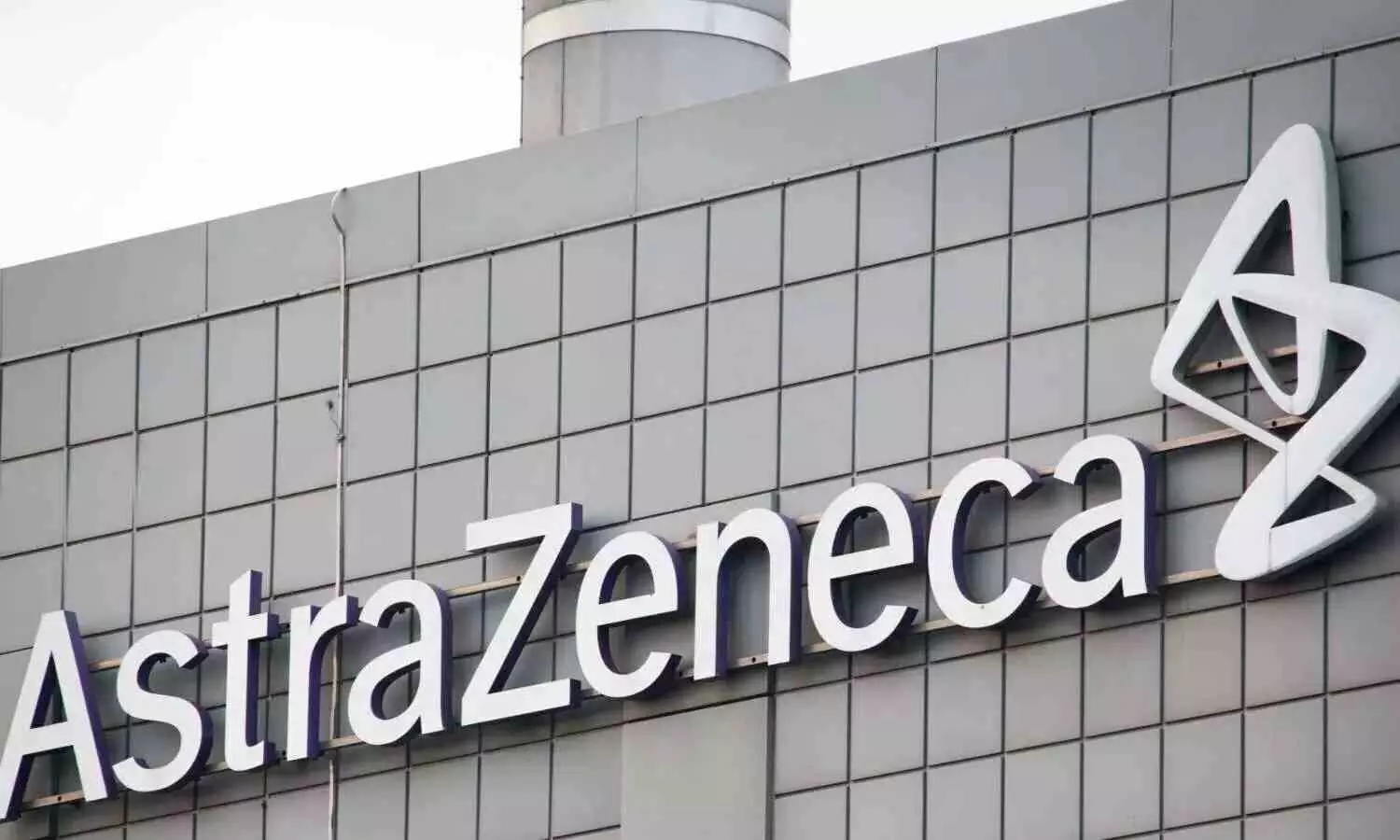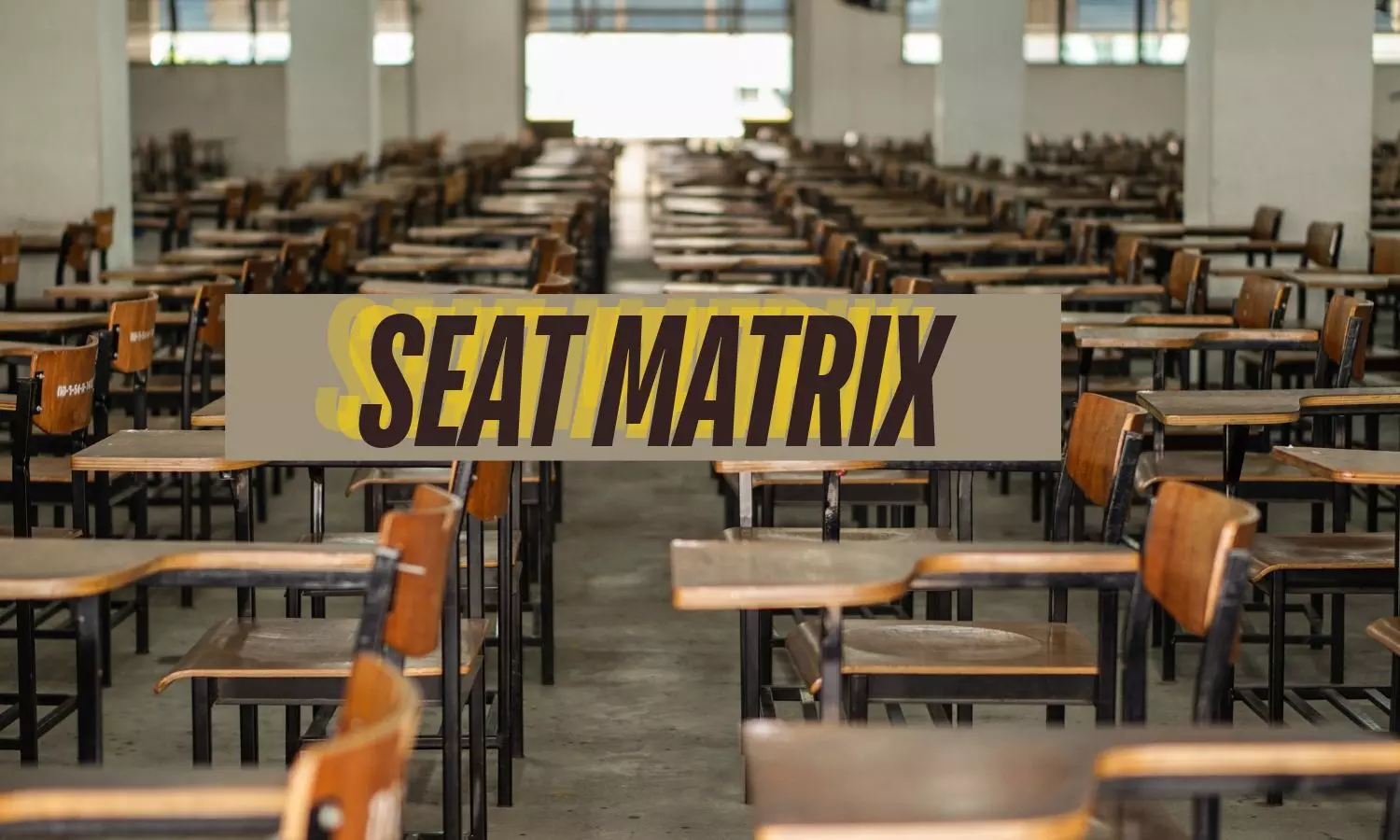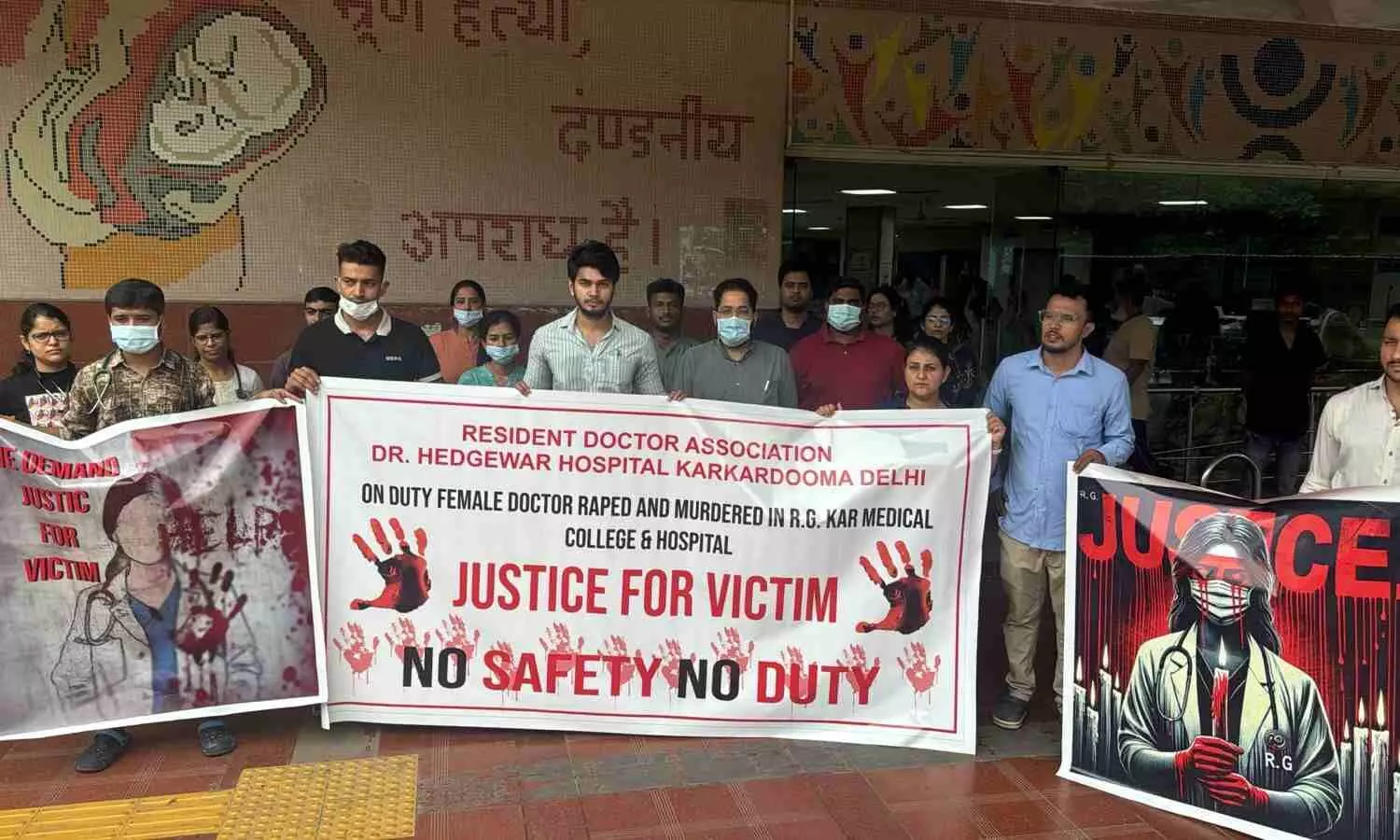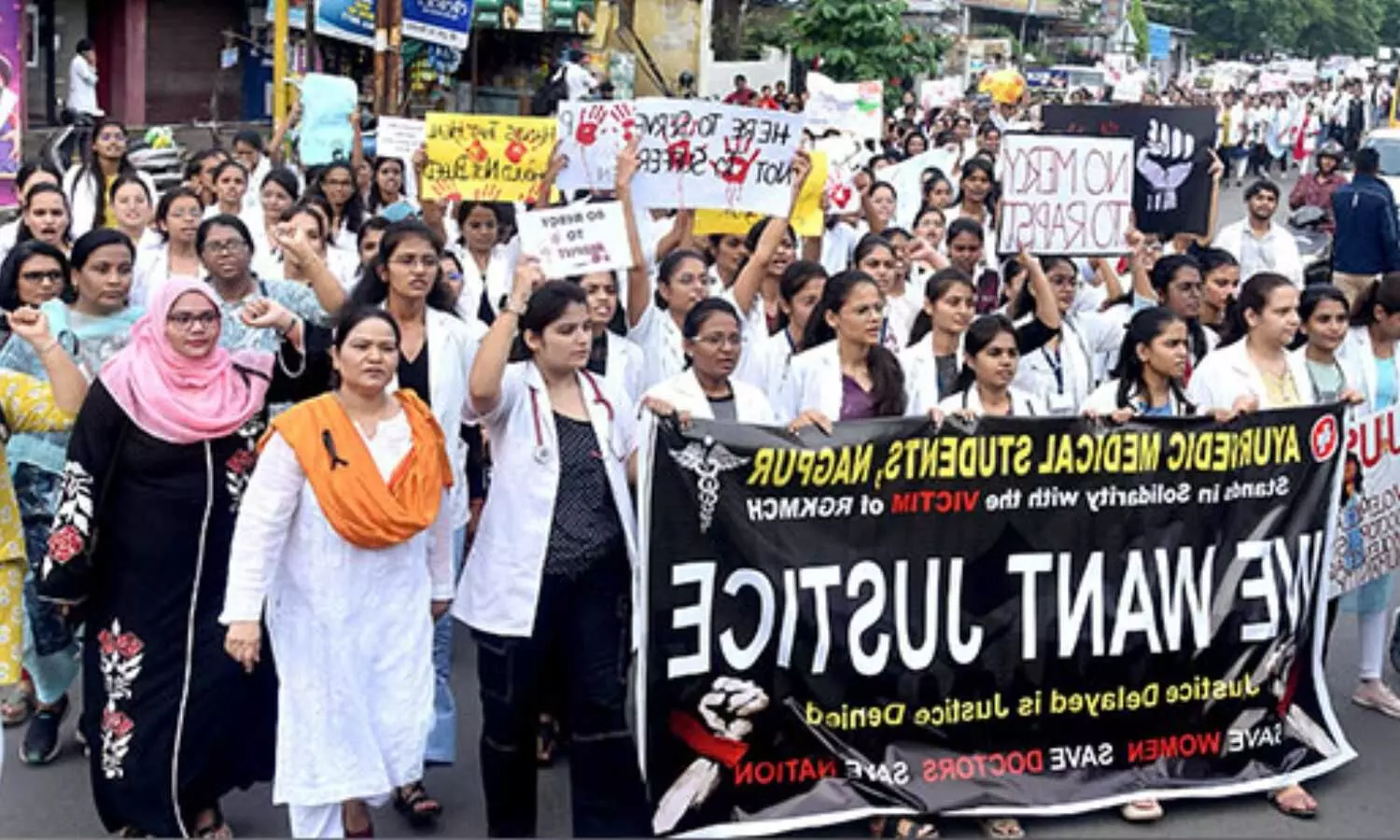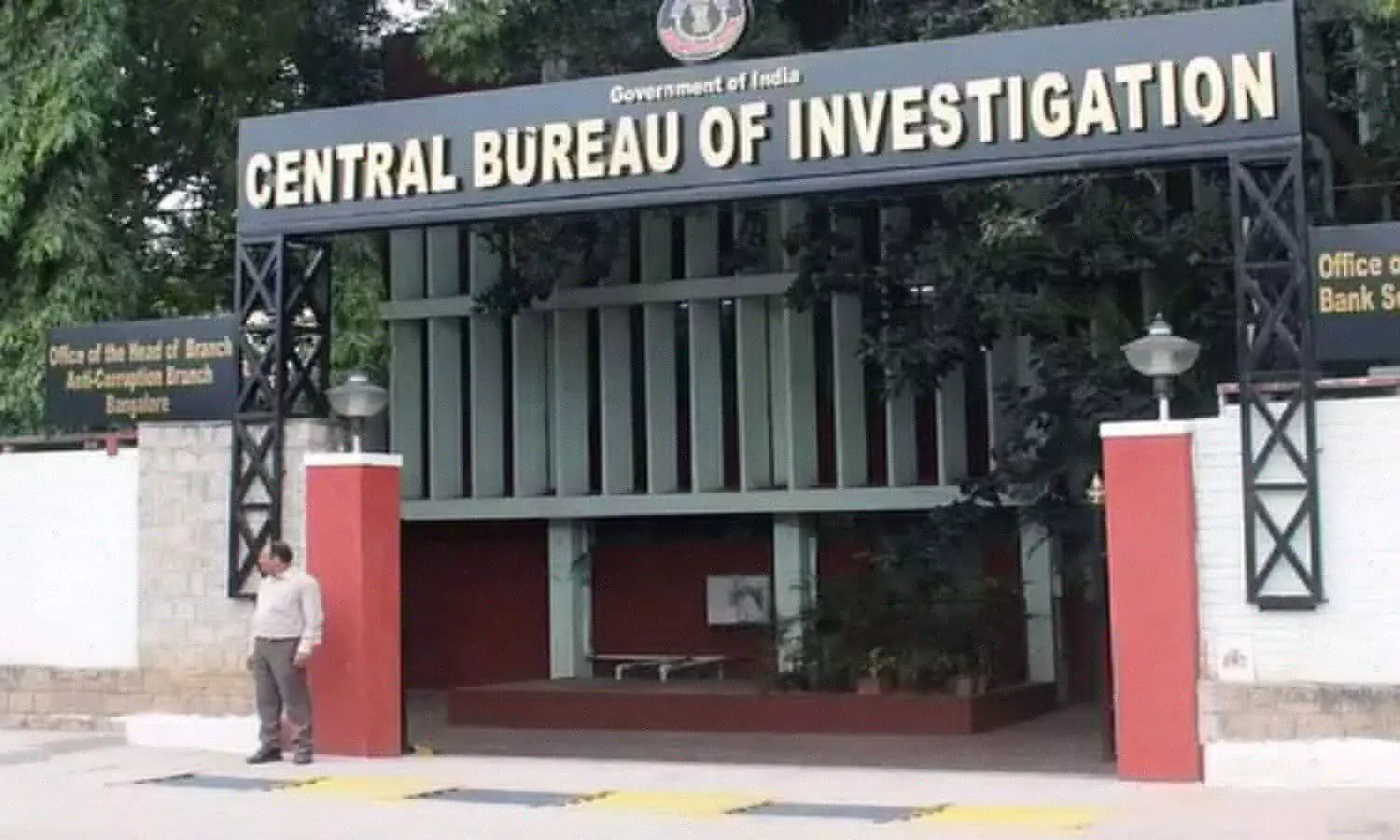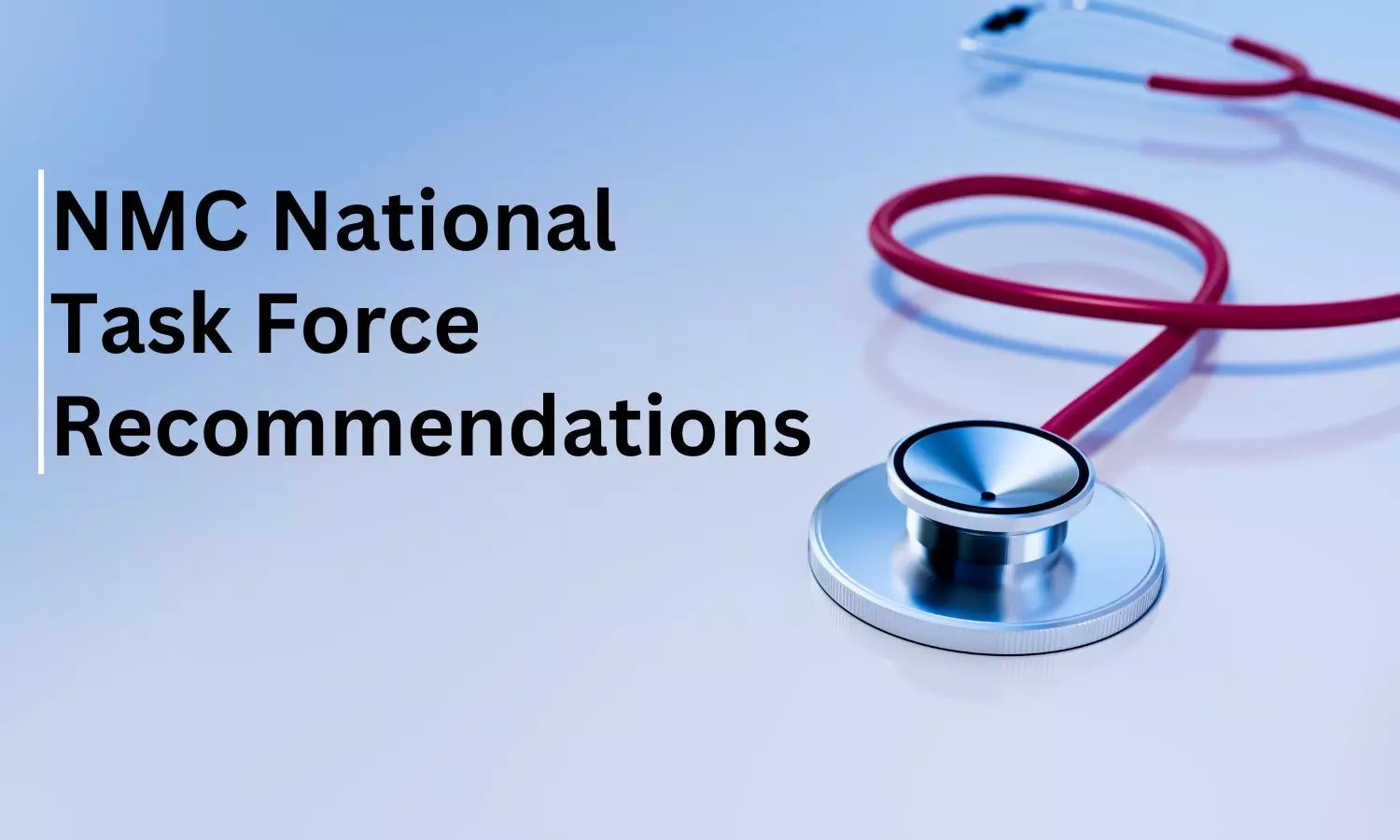
New Delhi: The National Task Force, set up by the National Medical Commission’s (NMC) Anti-Ragging Committee has issued several recommendations to the medical colleges/institutes across the country to ensure proper mental health and well-being of medical students.
In its report, the NMC ‘National Task Force on Mental Health and Well-being of Medical Students’, has opined that the environment of medical colleges is vital for fostering a healthy academic and work culture for students, faculty and staff. Therefore, a proactive and compassionate approach from the administration can significantly impact the mental health of medical students.
“By prioritizing mental well-being, institutions contribute to the success and resilience of future healthcare professionals,” it opined.
NMC Anti-Ragging Committee had set up the National Task Force to study existing literature and data on the mental health of medical students and propose evidence-based strategies for improving the same.
This Task Force had initiated an online survey, collecting data from medical students, faculties, and administrators regarding mental health history, workload, overall stress level, etc. More than 37,000 medical students had submitted their responses to the government authorities, indicating that they were suffering from mental stress.
After analyzing the data collected from the in-person visit to the medical colleges, the online survey, and the meeting with stakeholders, the Task Force noted that mental health conditions have been diagnosed in 7,115 (27.7%) students, with 3,780 (14.8%) having one condition, 1,851 (7.2%) having two, and 1,045 (4.1%) having three conditions.
To ensure the mental health and well-being of medical students, the NMC Task Force has issued the following recommendations to the medical colleges across the country:
Orientation Program at Joining:
A comprehensive orientation program within four weeks for undergraduate students and two weeks for postgraduate students upon joining is essential for new entrants. This program should introduce students to the medical profession, campus resources, and the importance of physical, mental, and spiritual health. By prioritizing mental health and familiarizing students with available support systems, this initiative aims to create a supportive and well-informed environment from the outset of their medical education.
Involving Family Members:
Involving family members during the induction program and periodically, at least once a year, would help them understand the expectations and stressors faced by medical students. This understanding would enable families to provide effective support and enhance the ability of students to cope with academic and clinical demands.
Anti-Ragging Measures:
Strict implementation of the National Medical Commission (NMC) regulations on ragging is mandatory. Medical colleges should have active antiragging cells with strict penalties for offenders to mitigate the stress induced by ragging.
Awareness Campaigns and Education:
Regular programs should educate students and faculty about mental health issues and available resources. Mental health education should be integrated into undergraduate (UG) and postgraduate (PG) curricula through lectures, workshops, and seminars. It is recommended that medical teachers, students, and administration should undergo regular training in mental health, either through periodic in-person sessions or online via the Swayam portal. The training modules should cover mental health, stress management, building resilience, prevention of substance use, gatekeeper training, and basic counselling techniques. Specific emphasis should be placed on handling confidentiality matters concerning individuals with mental illness.
Counselling Services:
Implementing a 24/7 support system, such as the TeleMANAS initiative by the Union Ministry of Health & Family Welfare, is advisable. Medical colleges should have plans for referral, evaluation, management, and followup for students with mental illnesses. Confidential, accessible counseling services must be widely promoted. Medical colleges should consider appointing at least two counsellors for every 500 students. These counsellors should report directly to the Dean to ensure that preventive and promotive measures are actively implemented. Psychiatric referrals should only occur when the counsellors determine that a student requires psychiatric care.
Staff/Students Clinic:
Medical colleges should provide free diagnostics and treatment, including medicines, for physical and mental health issues within the campus. Establishing separate wards, clinics, and investigation facilities for students ensures easy access to healthcare services.
Work Environment:
Proper infrastructure and amenities are essential for maintaining the physical health and safety of medical students. This includes wellmaintained hostels, clean washrooms, safe drinking water, quality food, security measures, recreational facilities, and reasonable fees.
Hostel Mess:
To accommodate diverse cultural, religious, and dietary preferences, hostel messes should involve students in menu planning and quality control.
Regulation of Duty Hours:
The National Task Force recommends, based on feasibility, resources, and relevance, that residents work no more than 74 hours per week, with no more than 24 hours at a stretch. This includes one day off per week, a 24-hour duty, and 10-hour shifts for the remaining five days. Ensuring 7-8 hours of daily sleep for medical students is crucial for their mental and physical health. Collaborative planning of duty hours by HODs, faculty, senior residents and residents, needs to be done. It is imperative to recognize that post-graduates and interns primarily serve educational purposes rather than filling gaps in healthcare staffing. Requests for leave should be judiciously considered and not unreasonably declined. If there is an increased clinical workload, the hospital/medical college should hire more senior residents and medical officers.
Safe and Supportive Environment:
Medical students should have appropriate conditions during duty hours, such as comfortable rest areas, nutritious meals, and hydration facilities. Hospitals should provide regular breaks and ensure food availability in duty rooms.
Supporting Families and Childcare:
Medical colleges could consider providing onsite childcare facilities, family accommodation for married students, and daycare services. Supporting pregnant and postpartum students with academic accommodations, aligning with the Maternity Benefit (Amendment) Act 2017, is also beneficial.
Evaluation and Assessment Methods:
A fair and unbiased evaluation system is essential. Institutions may offer a mix of grading systems to reduce stress and promote a collaborative learning environment.
Communication Feedback and Work Environment:
Regular feedback from faculty and students enhances trust and fosters a healthy work environment. Addressing issues related to workload, hierarchy, or mistreatment is important to maintain inclusivity and respect.
Transparent and Responsive Grievance Redressal:
Clear grievance redressal systems should address harassment and psychological stress. Training faculty and administrators on mentorship, accountability, and anti-harassment policies is essential. A feedback and complaint box should be available in both the Director/Dean’s office and the warden’s office.
E-Complaint Portal of NMC:
The NMC should establish a national portal for grievance redressal, enabling secure and efficient complaint handling. A dedicated grievance redressal cell within the NMC should manage the workflow and ensure timely resolutions.
Mentor-Mentee Program:
Mentor-mentee programs, as per NMC regulations, provide guidance and professional development opportunities. These programs should involve regular meetings, training for mentors, and support for mentees to promote mental health and resilience.
Removing Fees for Repetition of Semesters:
Abolishing fees for repeating semesters reduces economic burdens and stress. Transparent and standardized grading systems and an independent appeals process is essential.
Teachers’ Apprehension:
Creating a supportive environment for teachers is crucial. Clear protocols for handling student complaints, promoting professionalism, and addressing false complaints can enhance teacher engagement and satisfaction.
Uniform PayScale, Retirement, Pension, and Rotational Headship (UPRPR):
Standardizing pay scales, retirement and rotational headship policies across institutions ensures equity and attracts high-quality faculty. Prohibiting private practice for medical teachers and providing non-practicing allowances can maintain the quality & integrity of education.
Reducing Access to Means for Suicide:
Implementing measures to limit access to dangerous means can prevent impulsive self-harm. Evaluating high-risk areas and enhancing security measures are essential.
Family Vacation:
Medical colleges could consider granting a ten-day vacation at least once a year to both undergraduate and postgraduate medical students on a rotational basis. This vacation would allow students to meet their family members and foster family bonding.
Gate-Keeper Training Program:
A Gatekeeper Training Program in medical colleges aims to establish a proactive network for identifying at-risk individuals and connecting them with professional help. This program involves comprehensive training for participants to recognize warning signs and refer students to mental health services. With the support of the Department of Psychiatry, local protocols should be developed, and the gatekeeper training program should be initiated across the campus, involving all stakeholders. This initiative is crucial for fostering a supportive environment and enhancing mental health awareness within the medical college community
Increasing the Number of Postgraduate and Super-speciality Seats:
Expanding postgraduate medical seats addresses healthcare needs, enhances specialist care, and reduces student migration.
Employing Adequate Number of Senior Residents:
Medical colleges should hire more senior residents based on workload and patient care demands.
Policy Adjustments Regarding Bonds:
Abolishing seat leaving fees/bonds and a compulsory rural service bond is imperative. Medical students who abandon their seats after admission should be prohibited from applying to medical colleges for twenty-four months from the date of leaving. Additionally, medical colleges can fill the vacated seat (UG/PG) in the same category (Government/Management Seat) as the student belonged to in the next upcoming calendar year.
Trial Observership/Externships/Residency:
A trial observership or residency period provides firsthand experience of the college and department environment, helping students make informed decisions about their choice of field and institution.
Use of Technology in Training Medical Students:
Integrating technology, such as Virtual Reality (VR), Augmented Reality (AR), Artificial Intelligence (AI), and Machine Learning (ML), into medical training enhances learning experiences and prepares students for technological advancements in healthcare.
Library Facilities:
Digitizing library facilities and creating online access systems support academic development. Establishing reading rooms in hostels and extending library hours accommodate diverse study preferences.
Value-added Optional Courses:
Introducing optional courses in various subjects allows students to explore diverse interests and develop multidisciplinary skills, thereby enhancing their academic and professional growth. These courses can be credited or non-credited and may be accredited by the medical college, university, State Medical Council, or NMC, New Delhi. This approach aligns with the principles of the New Education Policy.
Invited Guest Faculty:
Inviting part-time faculty from various fields enriches the educational experience by providing diverse perspectives and mentorship without administrative burdens.
Clinical Linguistic Language Proficiency Policy:
A comprehensive policy for linguistic proficiency ensures effective communication with local clinical populations, enhancing patient care and professional development.
Supplementary Exams:
Introducing supplementary exams reduces academic pressure and anxiety, providing a fairer assessment system and supporting student well-being. 3.1.33 Announcing Exam Results Using Roll Numbers: Using roll numbers to announce exam results enhances privacy, reduces stress, and promotes a fair academic environment.
Addressing the ‘Ghost Faculty’ Problem:
Enhanced verification processes, regular inspections, and stringent penalties can address the ghost faculty issue, ensuring the integrity of medical education.
Centre for Training of Medical Teachers (CTMT):
A comprehensive teacher training centre at both the national and regional levels is essential to elevate medical faculty into exemplary educators proficient in pedagogy, andragogy, online teaching, and various methods of imparting skills. Training medical teachers in stress management, mental illness, substance use, mental health first aid, and basic counselling techniques is essential.
Career Counselling and Campus Recruitment:
Expanding career counselling to include diverse professional guidance and facilitating campus recruitment ensures medical students are well-prepared for various career paths.
Establishing Health Universities:
Dedicated health universities or departments within general universities can ensure the effective implementation of NMC regulations and address the unique needs of medical education.
Establishment of the Centre for ICARED:
A Centre for Innovation, Collaboration, Accelerator, Research, Entrepreneurship, and Medical Device Development (ICARED) fosters a culture of innovation and practical learning, preparing students for leadership in healthcare.
Liaison with Local Organizations:
Medical colleges should liaise with professional organizations and community groups to develop a support network for students, enhancing their academic, professional, and personal development.
Yoga in Promoting Mental Health:
Integrating yoga into students’ lives can reduce stress, prevent mental illness, and develop resilience, promoting overall well-being.
Specific Suggestions for Medical Students, Families, and Faculty:
Effective time management, social support, self-awareness, mindfulness, regular exercise, healthy habits, and seeking professional help are essential for maintaining good mental health. Family involvement and faculty support play crucial roles in student well-being.
Mental Health and Wellbeing Committee –
At the national level, the Permanent Member of the National Medical Commission’s (NMC) Ethics and Medical Registration Board (EMRB) should serve as the nodal person. At the medical college level, the Mental Health and Well-Being Committee needs to be structured as follows: the Dean must serve as the Chair, the Head of the Department (HOD) of Medicine, Surgery, Obstetrics and Gynaecology (OBG) to be designated as the Co-Chairs (three co-chairs), and the HOD of Psychiatry to act as the Member Secretary. Additionally, the HODs of each department should be members of this committee to ensure the implementation of these recommendations.
Enhancing Physical Fitness and Sports Activities:
It is recommended that the college organize and maintain diverse sports activities, overseen by a sports Committee, with dedicated time allotted for physical activities.
Sāmājika Sanskriti Campus Council:
The Sāmājika Sanskriti Campus Council aims to reduce social isolation and enhance well-being by supporting diverse social groups and activities within medical colleges. Headed by senior faculty and student representatives, it allocates resources for various cultural, recreational, and festival events. Regular evaluations and a quarterly newsletter foster community, making the educational environment more inclusive and engaging.
Recommendation for High-Risk Group Identification and Referral:
Implementing periodic faculty training and informal methods for early detection of atrisk students ensures timely intervention and support, enhancing student well-being and academic success.
For this, the Task Force has proposed a comprehensive Peer Support Model in medical colleges, leveraging senior students to support juniors, aiming to improve mental health, provide academic and emotional support, and prevent suicide. The program includes safe spaces, anonymous reporting, professional support integration, mental health awareness campaigns, and suicide prevention workshops. Regular feedback and evaluations will ensure effectiveness and inform adjustments.
Further, the Task Force has recommended encouraging students dependent on substances to seek help while maintaining confidentiality rather than be reprimanded.
Recommendation for Students with Mental Illness or Attempted Suicide
The Task Force has recommended a supportive and inclusive environment in the medical colleges that can be set up in the Department of Psychiatry with sufficient psychiatrists, counsellors, nurses, and support personnel.
Further, it has recommended a fitness to practice protocol for evaluating fitness to practice for medical students with mental illness ensures, patient safety and supports student well-being. An evaluation Committee should be formed to assess fitness to practice. The committee should comprise the following members: the Dean (as Chair), a psychiatrist, a faculty member from forensic medicine, the Head of the Department (HOD) of the concerned department, and a female faculty member. An appeal panel also needs to be established.
Apart from this, it has recommended “Mandatory Reporting of Suicidal Attempts and Death by Suicide” to ensure data collection, accountability, and the development of targeted interventions for mental health support.
“By implementing these recommendations, medical colleges can create a supportive, inclusive, and effective environment that enhances the mental well-being and academic success of medical students, ensuring a healthier future workforce,” the Task Force mentioned in its report.
Also Read: NMC Recommends Uniform PayScale, Retirement Policy like AIIMS Delhi for All Medicos, Faculty
